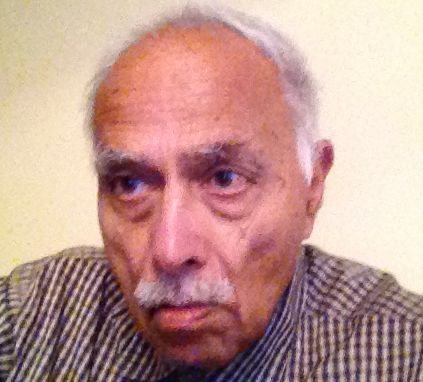Latest Contributions
Memories of Lahore: Summer 1947
Category:

Dr. Anand - an unholy person born in 1932 in the holy town of Nankana Sahib, central Punjab. A lawyer father, a doctor mother. Peripatetic childhood - almost gypsy style. Many schools. Many friends, ranging from a cobbler's son (poorly shod as the proverb goes) to a judge's son. MB From Glancy (now Government) Medical College Amritsar, 1958. Comet 4 to Heathrow, 1960.
Long retired. Widower. A son and a daughter, their spouses, five grandchildren, two hens (impartially, one black, one white) keeping an eye on me as I stand still and the world goes by.
In 1947, I was a student at DAV College, Lahore. It stood fairly close to the Zamzama Gun, an artillery piece cast before Maharaja Ranjit Singh created the Khalsa Empire. An empire, which, despite the word Khalsa, was as non-communal as any. In fact, Ranjit Singh's youngest or junior most Maharani was a Muslim.
Before Ranjit Singh consolidated his hold on the Trans-Sutlej Punjab, the gun was in the ownership of the Bhangi Missal (sect). They were Jat Sikhs, reputedly fond of Cannabis indica. The Punjabi name of the gun was Bhangian di tope (The cannon of the Bhangis.)
It was commonly believed that whosoever held possession of the Zamzama would hold the Punjab. It had the longest range of any then in service in the sub-continent. When the East India Company defeated the Khalsa, they displayed the gun in Lahore.
I used to eat my lunch sitting on the platform of the gun. (At that time, I had not read Rudyard Kipling's Kim who reportedly used to play on the gun),
It was a hot summer. Tempers too were boiling. Rioting had started. Prudence called for escape - if possible.
My father was a lawyer in Shahdara courts. Shahdara was then practically a suburb of Lahore. Physically he was small but he was strong. Tennis, walking, walking in the hills in summer kept him fit.
He was not optimistic about peace in the Punjab. He was familiar (from repeated visits) with Simla and its Hills. He arranged for the rental of a very large bungalow, standing by itself, on one of the numerous hills in the Princely State of Solan. The bungalow was to be the "secure" residence for three families: my aunt's, my uncle's and ours.
I used to cycle the couple of miles to my College, as did most of the students. Because of the possibility of being attacked en route, I would carry, in a fold of my trousers, a kitchen knife. Never did I think that a dagger from behind would slice my neck before I could reach for my Weapon of Defence.
Every day, Lahore was burning.
My maternal grandfather travelled to Lahore to bring my grandmother to our home, so that she could accompany us to Solan.
At the end of June 1947, we went from our home to Lahore Railway Station by a tonga (horse-drawn carriage). On board the tonga, pulled by an unusually strong horse, were the tonga driver, my father, my grandmother, my brother (13 years old) my sister (10 years old), me (15 years old), and a couple of suitcases. My siblings and I were students. My maternal grandmother was a farmer's wife, who expected to return to the village when the dust settled.
We also had some Aaloo parathas, a couple of thermos flasks with cold water so we did not have to listen out for "Hindu pani, Muslim pani, Hindu chai, Muslim chai" calls on wayside halts.
My mother and her father stayed back in burning Lahore. My mother was a doctor in the government servants' Estate hospital, and she could not leave until she got her official transfer orders (which came later only a few days before 15 August 1947). My grandfather had come to Lahore, literally with not a spare set of clothes. He had expected to return to his village the same evening. My mother persuaded him to stay with her till the religious mania subsided. Just as well - the killings continued until a kind of population exchange was completed by the autumn. As a full Sikh, with his beard and turban, he was recognisable as a target for attack by Muslims.
As my mother hugged us when we left our home, the tonga driver, a Muslim, said, "Yes, embrace your selves. You may never meet again."
The drive to the Lahore Railway Station seemed interminably long. I wondered why we were not going the straight and familiar route. When we finally disembarked, the tonga driver said, "I have brought you through areas safe for you. Now, Khuda Hafiz." Here was a gentleman, at a time when there were very few of them in Lahore.
______________________________________
© Joginder Anand 2015
Comments
Add new comment